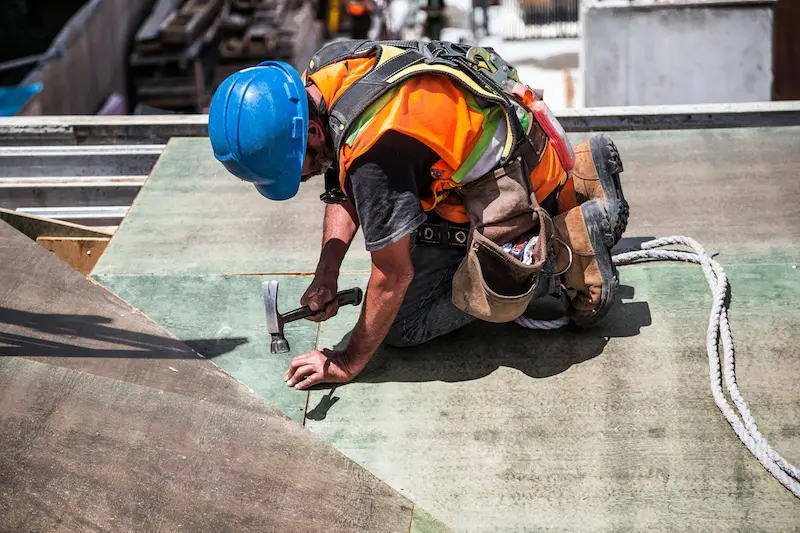How to Enforce an Adjudicator’s Decision in the TCC
Winning an adjudication should mark the end of a dispute. Your business has invested time, money, and resources into the process, and the adjudicator has ruled in your favour.
Yet sometimes the battle isn’t quite over. If the losing party refuses to pay, you have a clear legal route to compel them through court enforcement proceedings.
The courts take non-compliance seriously, and businesses that ignore binding adjudication decisions face swift enforcement action that can result in court-ordered payments, additional legal costs, and damage to their commercial reputation.
If you’re facing enforcement proceedings or need to enforce an adjudication decision, our construction law team can help you defend your position or recover what you’re owed quickly and effectively.

What is Adjudication Enforcement?
Adjudication enforcement is the legal process of compelling a party to comply with an adjudicator’s decision when they fail to make payment voluntarily. The Technology and Construction Court (TCC), a specialist part of the High Court in England and Wales, handles these enforcement proceedings.
The TCC robustly ensures that decisions are adhered to, upholding the integrity of the adjudication process. Construction disputes operate on a pay now, argue later principle. Courts expect payments dictated by adjudicator decisions to be made immediately, with any subsequent arguments handled through later litigation or arbitration.
The Enforcement Process in the TCC
When the unsuccessful party fails to pay despite the binding decision, the successful party must first formally demand payment. If payment is not satisfied, enforcement proceedings begin through the TCC.
The enforcement claim typically consists of two parts:
- The claim for enforcement of the decision itself
- An application for summary judgment under Civil Procedure Rules Part 24
The successful party prepares key documents, including the claim form and Particulars of Claim. These detail the relationship between the parties, how the dispute arose, the adjudication outcome, and the failure to pay.
A judge usually reviews the application within three working days and sets a hearing date within 28 days. This rapid timeline leaves businesses with very limited time to mount any defence.
Summary judgment applications are commonplace in enforcement proceedings because parties are contractually bound to comply with the adjudicator’s decision. The losing party has very little prospect of successfully resisting enforcement. If your business is facing enforcement proceedings, the court will almost certainly order you to pay, even if you believe the adjudicator’s decision was wrong.

Is an Adjudicator's Decision Binding?
An adjudicator’s decision is legally binding. The decision stays in force until the parties reach an agreement or the matter is resolved through litigation or arbitration.
Courts will enforce these decisions even when they contain factual or legal errors. Speed matters more than accuracy in adjudication. Provided the adjudicator addressed the dispute they were asked to decide, mistakes don’t prevent enforcement. Your business cannot withhold payment simply because you disagree with the outcome.
Limited Grounds for Challenging Enforcement
The courts have repeatedly made clear that adjudicators’ decisions should generally be enforced. The established grounds for challenging are deliberately narrow. They are limited to:
- Jurisdiction issues
- Material breaches of natural justice
- Fraud
- Financial misconduct by the winning party
- A clearly unjust result
A jurisdictional challenge may be raised if the adjudicator did not have jurisdiction or failed to determine the dispute referred. Grounds include the contract not being a construction contract under the Construction Act, procedural errors, or the dispute not yet being ready for adjudication.
If you want to challenge jurisdiction, you must state your objection clearly at the very start of the adjudication. If you participate without making this objection explicit from day one, you lose the right to challenge later. This common mistake costs businesses their ability to resist enforcement.
The court may refuse enforcement if the adjudicator acted unfairly during the process. Examples include the adjudicator communicating with only one party in secret, deciding the case on a completely different basis than either party argued, or ignoring one party’s arguments entirely. Fraud can also prevent enforcement, but you need clear, strong evidence. Suspicions or allegations alone will not be enough.

Is an Adjudicator's Award Enforceable if They Get the Law Wrong?
Courts enforce adjudicator decisions even when they contain factual or legal errors. The pay now, argue later principle applies: comply with the decision first, then pursue litigation or arbitration for final resolution if needed. Refusing payment leads to enforcement action and escalating legal costs.
Alternative Routes When the Decision is Wrong
A rare alternative does exist through the Part 8 process, where you can seek a court declaration on narrow issues. This applies in very limited circumstances (roughly 1 in 100 cases) where the issue is straightforward and can be resolved quickly without oral evidence.
The court can split the decision, enforcing the valid parts while rejecting the flawed elements. Your business may still have to pay based on what the adjudicator got right.

Stay of Execution
In limited circumstances, the court may grant a stay of execution, which pauses enforcement typically until a specific date or pending the outcome of a True Value Adjudication.
The most common basis for seeking a stay involves arguing that the successful party is in financial difficulties or insolvent and would not be able to repay money if required later.
Key principles include:
- A stay will usually be granted if the payee is obviously insolvent or currently undergoing an insolvency process
- The payee’s probable inability to repay may justify a stay, unless their financial position is the same as when the contract was entered, or the inability was caused by the payer’s failure to pay the award
- The court may still enforce the decision if the payee offers security such as a guarantee bond or insurance policy
The party seeking a stay must provide robust evidence, including witness evidence and likely expert evidence from a forensic accountant. Without compelling evidence, stay applications will be refused, and enforcement will proceed.
Protecting your Business
Beyond the immediate financial impact, enforcement proceedings can strain supplier relationships, delay ongoing projects, and create cash flow pressures that ripple through your entire business operation.
For businesses, the key is understanding your obligations and acting swiftly. Whether you’re seeking to enforce a decision or facing enforcement action, delays can worsen your position financially and legally.
Given the complexities involved, the tight timescales, and the business consequences of getting this wrong, consulting a specialist construction law solicitor is essential for protecting your interests and managing your legal obligations effectively.
Contact us for expert support with adjudication enforcement, TCC proceedings, or defending enforcement claims. Our specialist team delivers practical, tailored advice based on your circumstances, helping you navigate enforcement proceedings efficiently and protect your business position.

